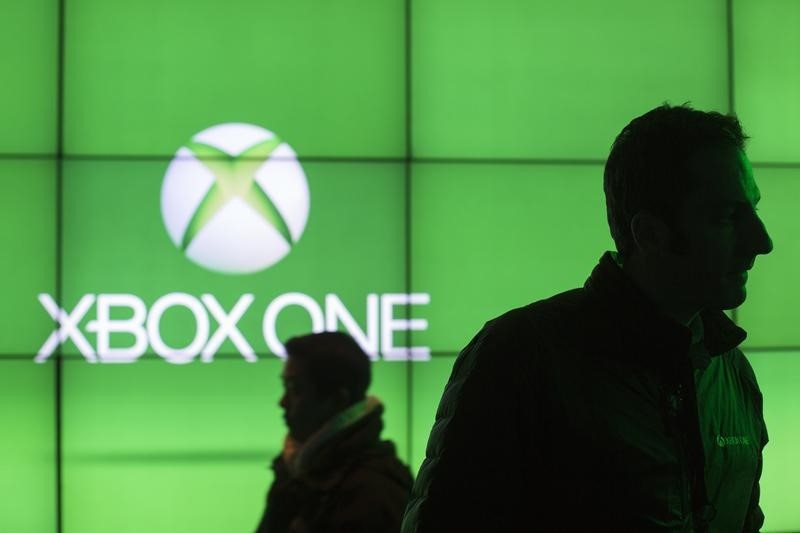This post was originally published on this site
https://i-invdn-com.investing.com/trkd-images/LYNXMPEJ4E0KX_L.jpg
BRUSSELS (Reuters) -Microsoft Corp won EU antitrust approval for its $69 billion acquisition of Activision on Monday, in a significant boost that could prompt Chinese and South Korean regulators to follow suit despite a British veto of the deal.
The U.S. software giant still faces a battle to clinch the world’s biggest gaming industry takeover, however. It has until May 24 to appeal a decision by Britain’s Competition & Markets Authority (CMA) to block it. A final decision may take months.
The U.S. Federal Trade Commission’s case against the deal is also pending at the agency, though Japan approved it in March.
The European Commission said the transaction was pro-competitive due to Microsoft (NASDAQ:MSFT)’s agreement to licence popular Activision games such as “Call of Duty” to rival game streaming platforms, confirming a Reuters report in March.
Such licences are “practical and effective”, European Union antitrust chief Margrethe Vestager told reporters.
“Actually they significantly improve the condition for cloud game streaming compared to the present situation, which is why we actually consider them pro-competitive,” she added, contrasting with the UK position that the deal would hit competition in that part of the market.
In rejecting the deal, the UK watchdog was seen as flexing its muscle on the global regulatory stage since Brexit.
Microsoft has in recent months signed licensing deals with Nvidia (NASDAQ:NVDA), Nintendo, Ukraine’s Boosteroid and Japan’s Ubitus to bring Activision games to their platforms should the deal go through.
“The European Commission has required Microsoft to license popular Activision Blizzard (NASDAQ:ATVI) games automatically to competing cloud gaming services. This will apply globally and will empower millions of consumers worldwide to play these games on any device they choose,” said Microsoft President Brad Smith.
Activision’s shares were up 1.3% at 1650 GMT, while Microsoft’s were little changed.
CLOUD GAMING MARKET GROWTH
Vestager said the Commission had a different view from UK regulators of how the game streaming market, which accounted for just 1% of the total market last year, would develop.
“They see this market developing faster than we would think,” she said. “There is a bit of a paradox here, because we think that the remedies that we have taken … will allow for licensing to many, many more in the cloud gaming markets.”
Britain’s CMA said streaming was the most rapidly growing sector in gaming, while consoles were a mature market. It said Microsoft already accounted for 60-70% of global cloud gaming services and had other trump cards: Xbox, the leading PC operating system Windows and cloud provider Azure.
The CMA said on Monday it stood by its veto. Microsoft has said it will appeal that decision to the Competition Appeal Tribunal, with a ruling expected to take months.
The EU move will give CMA critics ammunition against the agency, said Alex Haffner, a partner at London law firm Fladgate.
“Critics of the CMA’s stance, of which there have been many, will inevitably seize on today’s decision as proving the point made that the UK’s regulatory regime is too rigid and stifles innovation,” he said.
“Microsoft and Activision’s lawyers will also use the decision to provide greater ballast to their appeal of the CMA’s decision.”


